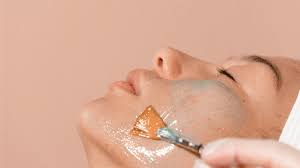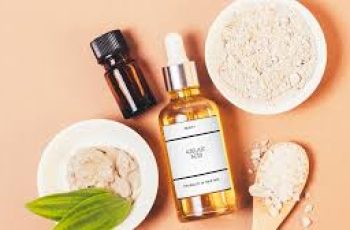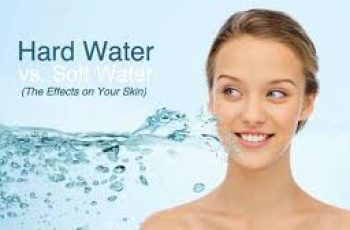
Skin Care Benefits of Retinol: Why It’s Good for Your Skin
If you’ve heard of retinol but aren’t sure what it does or why it’s so often recommended, you’re in the right place! This powerful ingredient has gained popularity for a reason—it’s a game-changer in the world of skincare. Whether you’re trying to tackle acne, fine lines, or sun damage, retinol is one of the most effective ingredients you can add to your routine. Let’s dive into why it’s so beneficial and how you can start incorporating it into your skincare routine.
Why Should You Use Retinol?
Retinol is one of the most effective multitaskers in skincare. If you struggle with any of the following, retinol might just be your skin’s best friend:
Acne: Retinol helps to unclog pores and reduce blemishes.
Enlarged Pores: It helps tighten pores and smooth skin texture.
Fine Lines & Wrinkles: Retinol stimulates collagen production, reducing the appearance of aging signs.
Uneven Skin Tone & Texture: It evens out skin tone and improves texture by promoting skin cell turnover.
After about 4 weeks of use, you’ll start to see noticeable changes. And after 3 months, the results will be even more dramatic. Expect firmer, plumper skin that looks younger, smoother, and healthier. Sun damage, acne scars, and hyperpigmentation will visibly fade. Yes, it’s that effective!
What Exactly Is Retinol?
Retinol is a form of vitamin A, and it works wonders on your skin by promoting skin renewal. It speeds up the process of shedding dead skin cells and encourages the production of new, fresh skin cells, which gives your complexion a healthy glow year-round.
But that’s not all—retinol also penetrates deeper layers of the skin, supporting the production of collagen, the protein that keeps your skin youthful, firm, and plump. Collagen production naturally starts to decline around age 30, but retinol can help prevent and reverse this loss, maintaining your skin’s firmness and smoothness.
If you’re looking for an ingredient that tackles fine lines, uneven texture, sun damage, or acne, retinol is the go-to product to add to your skincare routine!
When Should You Use Retinol?
There’s some debate over whether you should use retinol during the day, but the best time to apply it is at night. Why? The primary reason is that sunlight can break down retinol and reduce its effectiveness. Also, while retinol itself doesn’t cause sunburns, it can make your skin more sensitive to sunlight, so using it at night helps you get the full benefits without causing irritation.
How to Use Retinol Effectively
Retinol is one of those ingredients that requires gradual introduction into your skincare routine. Since it’s powerful, starting slow can help your skin adjust and prevent irritation. Here’s a simple guide:
Start Small: Begin with a lower concentration of retinol (like 0.3%) to avoid overwhelming your skin.
Frequency: In the beginning, use it twice a week for the first two weeks. This gives your skin time to adjust without irritation.
Gradual Increase: After two weeks, you can increase usage to every other night for another two weeks.
Consistency: Over time, your skin will adjust to retinol, and you can increase the concentration and frequency as your skin builds tolerance.
Maximum Strength: Eventually, you can work your way up to 1% or even 2% strength, depending on how your skin responds.
Pro Tip: Be patient—retinol requires consistent use to show the full benefits. It can take about 4–6 weeks to see significant improvements, and even longer for more dramatic changes, like the reduction of fine lines or hyperpigmentation.
Can I Use Retinol If I Have Acne?
Absolutely! In fact, retinol is a powerhouse for acne-prone skin. It works wonders by:
Unclogging pores, which is key in preventing acne.
Accelerating skin cell turnover, meaning that dead skin cells don’t stick around long enough to clog pores.
Helping with acne scarring, as it fades pigmentation and promotes smoother skin.
Over time, you’ll see less acne and fading of the scars left behind by previous breakouts. After about 3 months of use, those stubborn acne marks will become much less noticeable.
Can I Use AHAs or BHAs with Retinol?
Yes, you can use AHAs (alpha-hydroxy acids) or BHAs (beta-hydroxy acids) with retinol, but it’s important to use them at different times or on alternate days. These exfoliating acids work on the top layers of your skin, while retinol penetrates deeper to encourage cell turnover and collagen production.
Together, they make a dynamic duo, but since both ingredients encourage exfoliation, you need to be cautious about over-exfoliating, which can lead to irritation. A safe approach is to use AHAs/BHAs in the morning and retinol at night, or alternate their use on different nights.
Can I Use Retinol If I’m Pregnant or Breastfeeding?
While retinol is incredibly effective, it’s best to avoid retinol products if you’re pregnant or breastfeeding. Retinol is a form of vitamin A, and high doses of vitamin A have been linked to birth defects. If you’re expecting or nursing, consult your healthcare provider for alternative skincare options that are safe for pregnancy.
Summary of Retinol Benefits:
Fights acne: Unclogs pores, reduces blemishes.
Reduces fine lines & wrinkles: Stimulates collagen for smoother, firmer skin.
Improves skin texture: Evens out skin tone and texture, reduces hyperpigmentation.
Boosts skin renewal: Encourages fresh, glowing skin by speeding up cell turnover.
Great for all skin types: Works wonders for oily, dry, combination, and sensitive skin types.
Conclusion
Retinol is a skincare game-changer. Whether you’re combating acne, fighting fine lines, or aiming for a smoother, more even skin texture, retinol delivers results. With consistent use and a slow build-up, you’ll see glowing, youthful skin. Remember, it’s all about patience and consistency, so start slow and enjoy the long-term benefits that retinol has to offer!
If you’re unsure whether retinol is the right fit for your routine, it’s always a good idea to check with a dermatologist for personalized advice.
DQH Knowledge drop: In your 20s, your skin cell turnover decreases. (Cell turnover is a key component in keeping your skin youthful.) You know what else slows down? Your collagen production. Starting in your 20s, collagen decreases by about 1 percent per year. Should you want to prevent fine lines and wrinkles, start by eliminating behaviors that contribute to premature aging. “If it’s bad for you, it’s bad for your skin,” says dermatologist Michel Somenek.
“Cigarette smoking reduces blood flow to the skin and causes premature wrinkling and a dull skin texture. Making the repeated pursed motion to inhale can also cause smoker’s lines. Alcohol and recreational drugs are toxins for the skin that damage its cellular structure and DNA,” Somenek tells us. “The faster you eliminate vices while you are young, the better chance your skin and body have to recuperate.” Also, adopting an anti-aging routine in your 20s is key. After all, the best offense is a good defense. We spoke to Somenek and experts Joshua Ross and Audrey Kunin to find out more.
Keep reading for the best anti-aging products for your 20s, according to skincare professionals.
Sunscreen
“We all know that the sun is the number one cause of skin aging and starting the prevention in your 20s is very important,” Ross says. “The majority of your sun damage won’t start to appear until you’re in your 30s, so don’t wait until you see it surface or you’ll be behind the curve. Stay ahead of it with a good-quality zinc-based sunscreen worn daily.”
Farmacy Green Defense Daily Mineral Sunscreen
An invisible sunscreen with SPF 30, plus botanical extracts meant to protect skin with tons of antioxidants. Bonus: It’s clean and fine to use under makeup.
Bareminerals Complexion Rescue™ Tinted Moisturizer Broad Spectrum SPF 30
Although we recommend you use your SPF and moisturizer separately, we also understand moments when you don’t have time or energy for that extra step. For those times, this bareMinerals moisturizer is a great thing to have on hand.
Vitamin C Serum
“A great introduction to anti-aging is to start with a vitamin C serum in your morning skincare routine,” Ross says. “It’s a powerful antioxidant that will neutralize free radicals and brighten the skin.” He adds that it’s a great way to counteract the effects of the sun’s harmful rays, which, as previously mentioned, are among the biggest causes of premature aging.
Drunk Elephant C-Firma™ Vitamin C Day Serum
The Drunk Elephant C-Firma is a lightweight serum that promises to give skin a glow by combining the brightening powers of vitamin C with ferulic acid, l-ascorbic acid, and vitamin E. The included sodium hyaluronate is meant to replace hydration loss, so you shouldn’t have to deal with any irritation.
Sunday Riley C.E.O. Rapid Flash Brightening Serum
This potent serum is jam-packed with vitamin C (15 percent, to be exact), which means it’s a potential superstar at both brightening skin and dousing it in antioxidants.
Peptides
Using peptides on your skin has many benefits, says Somenek. “The skin barrier is what defends the body against pollution, UV rays, bacteria, and toxins. It can be damaged by several everyday factors. Using topical peptides aids in building a stronger barrier,” he says. “Peptides comprise elastic fibers, which are a type of protein. These fibers help to make skin appear taut and firm. Peptides can also help repair damaged skin, relieve inflammation, and even out skin tone. Some peptides can kill acne-causing bacteria that is common in 20-somethings.”
Kunin agrees, saying, “Peptides are an excellent entry point for supporting collagen.” She recommends looking for face and eye treatments that contain these collagen-boosting powerhouses.
Charlotte Tilbury Magic Eye Rescue Cream
This Charlotte Tilbury super-emollient eye cream has a base of coconut oil and shea butter (read: it’s incredibly hydrating). Botanicals plus peptides are meant to help reduce dark circles and boost collagen, respectively.
This creamy moisturizer serves up potent collagen-boosting peptides and pycnogenol, and antioxidant-rich vitamin C. “Instead of sitting on top of the skin, peptides penetrate the outer layer so they go deep. The ‘signals’ they send tell the cells to produce elastin and collagen, which are needed for youthful-looking skin,” explains Somenek.
At-Home Peel Pads
Remember that skin cell turnover fiasco we talked about earlier? One way to help support it is by exfoliating. “Exfoliation is important to help keep skin fresh and luminous,” Kunin says. She recommends using at-home peel pads as an easy and effective way to exfoliate.
“The goal in your 20s is to fight the slowing pace of cell turnover. It is wise to use products that gently exfoliate, yet still remove oil and other impurities. Products that have Alpha Hydroxy Acids (AHA) or Beta Hydroxy Acids (BHA) are a good choice.”
According to Somenek, you should only exfoliate two to three times a week. “People of all ages are guilty of over-exfoliating and that can be too much of a good thing,” he says.
Dermadoctor Kakadu C Intensive Vitamin C Peel Pad
A few swipes of this Derma Doctor powerful peel pad promise to leave your skin glowing and smooth, thanks to the seven (yes, seven) types of chemical exfoliants, including AHA and BHA. It also contains vitamin C via Kakadu plum extract for added brightening and antioxidant protection.
KEY INGREDIENTS Kakadu plum extract is sourced from the Kakadu plum, a fruit grown in northern Australia. It contains vitamin C, which restores the skin’s natural barrier, increases collagen production, and soothes irritation.
Dr. Dennis Gross Skincare Alpha Beta® Universal Daily Peel Pads
These are the gold standard of peel pads, with a cult following and over 900 five-star reviews on Sephora. They’re easy to use and contain a blend of anti-aging exfoliating acids.
Emollient Night Cream
“In your 20s, you need to start upping the hydration in your skincare routine. You may have been cautious of over-moisturizing because of acne in your teens, but as you enter your 20s, your skin transitions and becomes drier,” Ross says. “I recommend an emollient night cream added into your evening skincare regimen.”
“Twenty-somethings need to make sure that they are not using creams that will clog their pores and cause excess oil production,” says Somenek. Opt for non-comedogenic products.
Cerave Skin Renewing Night Cream
One great choice is the CeraVe Skin Renewing Night Cream, which is a non-comedogenic night cream that leaves skin soft and glowy. It combines the moisturizing powers of ceramides and hyaluronic acid.
RoC Retinol Correxion Max Hydration Creme
“The best night cream ingredients contain retinol, benzoyl peroxide, and/or salicylic acid or hyaluronic acid. The goal is to moisturize, yet remove excess oil,” says Somenek. This Roc Retinol Correxion cream fits the bill as it contains both hyaluronic acid and retinol so it promises to moisturize while also being non-comedogenic.



